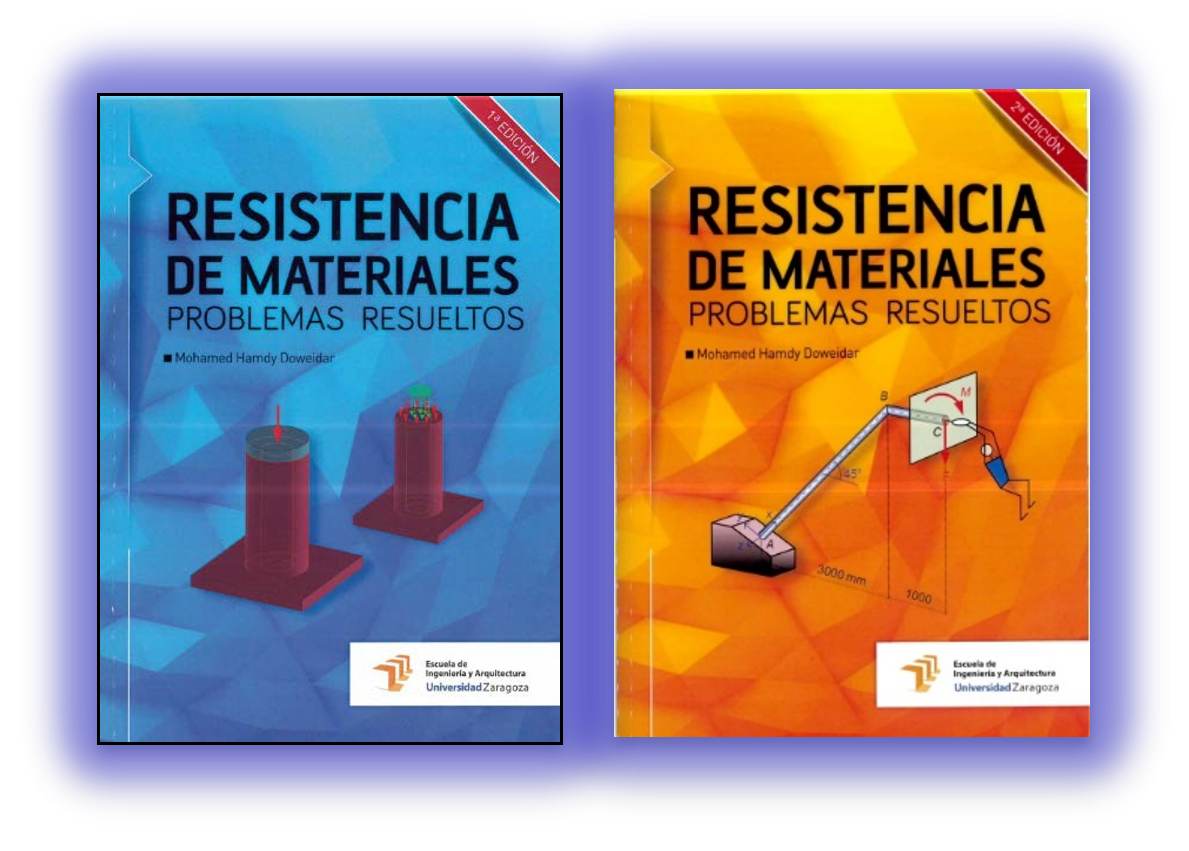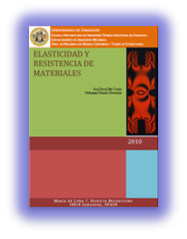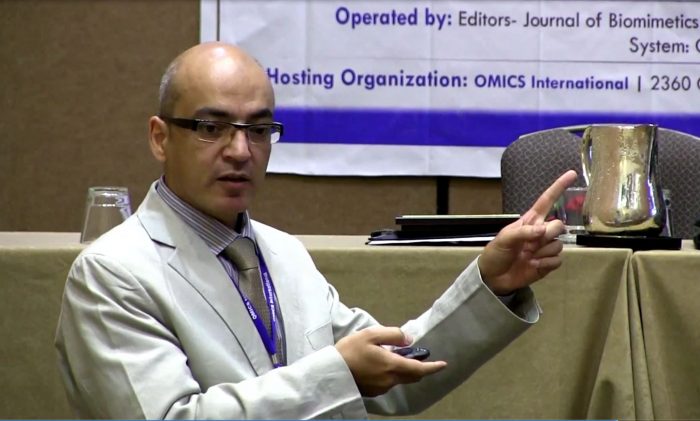Full Professor (Catedrático de Universidad)
Mechanical Engineering Department, School of Engineering and Architecture (EINA);
Bioengineering Division, Aragón Institute of Engineering Research (I3A);
CIBER de Bioingeniería, Biomateriales y Nanomedicina (CIBER-BBN);
Campus Rio Ebro, Edificio Agustin de Betancourt
Maria de Luna, s/n
50018-Zaragoza (Spain)
Tel.: (+34) 876 55 52 10
e-mail: mohamed@unizar.es
EDUCATION
- Ph.D. Computational Fluid Mechanics (2005), University of Zaragoza, Spain
- M.Sc. Engineering Mathematics (2001), Ain Shams University, Egypt
- Bachelor’s degree in Mathematics (Statistics and Informatics) (1997), Mansoura University, Egypt
- Bachelor’s degree in Industrial Engineering (1993), Benha University, Egypt
BIOGRAPHY
Mohamed H. Doweidar is a Professor of Mechanical Engineering at Zaragoza University, Spain. He has taught at various schools of engineering from 1994 until now. Besides, he has made significant contributions to the fields of Computational Cell Biology, Computational Biomechanics, and Biomedical Engineering.
Prof. Dr. Doweidar received his Ph.D. in Computational Fluid Dynamics (2005) with a Diploma of Advanced Studies in Computational Fluid Mechanics (2004) from Zaragoza University, Spain; Master’s degree in Engineering Mathematics (2001) from Ain Shams University, Egypt; Bachelor’s degree in Statistics and Computer Science (1997) from Mansoura University, Egypt; Degree in Industrial Engineering (1993) from Benha Higher Institute of Technology, Egypt. He is a member of the Applied Mechanics and Bioengineering Group (AMB); the Center for Biomedical Research Network in Bioengineering, Biomaterials and Nanomedicine (CIBER-BBN); the Engineering Research Institute of Aragon (I3A) and the European Society of Biomechanics (ESB).
Prof. Dr. Doweidar has participated in several national and international research projects. In addition, he is the author and co-author of numerous scientific papers in leading journals, as well as several books and book chapters with national and international publishers. Besides, he has participated in numerous national and international conferences. He is a member of the editorial board and a reviewer for many scientific journals. In addition, he serves as an evaluator for research projects at the National Agency of Evaluation and Prospective (ANEP). In addition, he has supervised many doctoral dissertations, some of which have received the university’s special prize. His research interests include Computational Biomechanics, Simulation of cellular behavior, hyperelastic materials, large deformation, Finite Element Method, Natural Elements Method, Computational Fluid Mechanics, error estimation, and Adaptivity.
Curriculum Vitae
Publications
- ORCID number 0000-0003-0088-7222
- SCOPUS author ID 7801536318
- Google Scholar (Profile)
- Research Gate (Profile)
- Academia (Profile)
Research topics
- Computational Biomechanics
- Cell Simulation [ Videos: 1, 2, 3, 4, 5, 6, 7, 8, 9, 10, 11]
- Hyperelastic Materials
- Finite Element Method
- Natural Element Method
- Computational Fluid Dynamics
- Error Estimation and Adaptivity
Books and Book chapters
- G. Paul and M.H. Doweidar, “Digital Human Modeling and Medicine: The Digital Twin”, Elsevier, 2022. [ISBN: 9780128239131]

- M.H. Doweidar, “Advances in Biomechanics and Tissue Regeneration”, Elsevier, 2019. [ISBN: 9780128163900]

- M.H. Doweidar, “Resistencia de Materiales: Problemas Resueltos”, Stylo Digital, Spain, 2017. [ISBN: 978-84-16825-28-8]

- D. Bel, S.P. Broto, M.H. Doweidar and E.L. Sancho, “Resistencia de Materiales”, Stylo Digital, Spain, 2014. [ISBN: 978-84-15688-89-1]

- H. Doweidar, R. Muñoz, E. Peña, B. Calvo and M. Doblaré, “3D Computational Modeling of the Human Knee in Physiological State”, Knee Joints: Kinematics, Injury Types and Treatment Options, Nova publishers, USA, 2012 2nd Quarter. [ISBN: 978-1-61942-268-1]
- H. Doweidar, “Advances in the Finite Element Method for Fluid Flow”, Vdm Verlag Dr. Muller Aktiengesellschaft & Co. Kg, Germany, 2011. [ISBN: 978-3-639-36993-9]

- Hauke, M.H. Doweidar and S. Fuente, “Mesh Adaptivity Using VMS Error Estimators. Application to the Transport Equation”, Boundary and Interior Layers, Computational & Asymptotic Methods, Vol. 81, 147-155, Eds.: C. Clavero, J.L. Gracia, F. Lisbona, Series: Lecture Notes in Computational Science and Engineering, Springer, 2011. [ISBN: 978-3-642-19664-5]
- Hauke, M.H. Doweidar and D. Fuster, “A Posteriori Error Estimation for Computational Fluid Dynamics. The Variational Multiscale Approach”, Multiscale Methods in Computational Mechanics, Vol. 55, 19-38, Eds.: E. Ramm, R. Borst, Series: Lecture Notes in Applied and Computational Mechanics, Springer, 2010. [ISBN: 978-90-481-9808-5]
- D. Bel and M.H. Doweidar, “Elasticidad y Resistencia de Materiales”, Stylo Digital, Spain, 2010. [ISBN: 978-84-938302-2-9]

Advised PhD students
- Pau Urdeitx Diaz. Advanced computational modeling of cell behavior for the study and optimization of cell reorganization processes in tissue regeneration and organ creation. Awarded PhD. May 2023. [PDF]
- Jacobo Ayensa Jiménez. Study of the effect of the tumour microenvironment on cell response using a combined simulation and machine learning approach. Application to the evolution of Glioblastoma. Awarded PhD. January 2022. (with Prof. M. Doblare) [PDF]
- Seyed Jamaleddin Mousavi. Computational Modeling of Cell Behaviour in Three-Dimensional Matrices. Awarded PhD. May 2015. [PDF]
- Sara Manzano Martínez. 3D Mechano-electro-chemical study of articular cartilage: Computational modelling and experimental characterization. May 2015. (with Prof. M. Doblare) [PDF]
